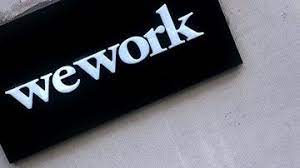
According to experts, investors will have to consider the uncertainty about the future of demand for office space in a pandemic environment globally where work from home is becoming the norm and poses a threat to the business model of WeWork, as this United States based office space renting startup is preparing for a second chance of going public.
On Friday, the embattled communal work space company said that it would merge with special purposes acquisition company BowX Acquisition for a public listing in the US. However there are concerns about demand for office space given the rise of the work from home trend during the Covid-19 pandemic.
The public listing of WeWork comes at a time when hybrid work schedules are being adopted by many companies under which employees are allowed to work from home for some days of the week and attend office on other days majorly for group meetings or projects. That would mean that those companies that already have lease agreements for office space will end up with too much space and are not likely to opt for spaces offered by WeWork for short-term conference rooms or offices.
“You’re going to find they can accommodate most pop-up meetings inside their office, so they don’t have to go to WeWork,” said Patrick Dore, a former Notre Dame real estate law professor who has handled office space deals in Manhattan.
It was almost two years ago that the office space renting company had to turn back on its attempt at an IPO in a dramatic way resulting in the ouster of the startup’s CEO and founder Adam Neumann.
The latest deal that WeWork is getting into values the company at more than $9 billion - which is just a fraction of the $47 billion valuation that was given to the company in September 2019, when its IPO had to be shelved after regulatory filings revealed massive losses for the company.
According to analysts, this latest deal with BowX provides a lifeline to WeWork. SPACs enter into deals with regulatory filings for acquisition, helped by cash raised from investors, so that the private company can be listed easily on an exchange. WeWork said it would also raise $1.3 billion.
With the global economy recovering, it anticipates strong growth, WeWork said during a call with industry analysts on Friday. Forecast of achieving a total of 1.5 million memberships by 2024 id being made by the company compared to 476,000 memberships in 2020. The company predicts to earn revenues of $7 billion, more than double last year, in that period, excluding China.
“Short-term real estate rental is not a particularly good business,” said Michael Cusumano, professor of technological innovation, entrepreneurship and strategic management at the Massachusetts Institute of Technology. “WeWork is similar to a rental car company that has fleets of cars that nobody is renting.”
(Source:www.usnews.com)
On Friday, the embattled communal work space company said that it would merge with special purposes acquisition company BowX Acquisition for a public listing in the US. However there are concerns about demand for office space given the rise of the work from home trend during the Covid-19 pandemic.
The public listing of WeWork comes at a time when hybrid work schedules are being adopted by many companies under which employees are allowed to work from home for some days of the week and attend office on other days majorly for group meetings or projects. That would mean that those companies that already have lease agreements for office space will end up with too much space and are not likely to opt for spaces offered by WeWork for short-term conference rooms or offices.
“You’re going to find they can accommodate most pop-up meetings inside their office, so they don’t have to go to WeWork,” said Patrick Dore, a former Notre Dame real estate law professor who has handled office space deals in Manhattan.
It was almost two years ago that the office space renting company had to turn back on its attempt at an IPO in a dramatic way resulting in the ouster of the startup’s CEO and founder Adam Neumann.
The latest deal that WeWork is getting into values the company at more than $9 billion - which is just a fraction of the $47 billion valuation that was given to the company in September 2019, when its IPO had to be shelved after regulatory filings revealed massive losses for the company.
According to analysts, this latest deal with BowX provides a lifeline to WeWork. SPACs enter into deals with regulatory filings for acquisition, helped by cash raised from investors, so that the private company can be listed easily on an exchange. WeWork said it would also raise $1.3 billion.
With the global economy recovering, it anticipates strong growth, WeWork said during a call with industry analysts on Friday. Forecast of achieving a total of 1.5 million memberships by 2024 id being made by the company compared to 476,000 memberships in 2020. The company predicts to earn revenues of $7 billion, more than double last year, in that period, excluding China.
“Short-term real estate rental is not a particularly good business,” said Michael Cusumano, professor of technological innovation, entrepreneurship and strategic management at the Massachusetts Institute of Technology. “WeWork is similar to a rental car company that has fleets of cars that nobody is renting.”
(Source:www.usnews.com)














